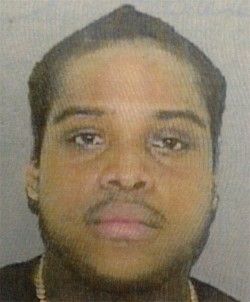EMS Denied Transgender Patient Care Causing Her Death, Alleges Sheepshead Bay Lawyer

ONLY ON SHEEPSHEAD BITES: Emergency responders left Shaun Smith to die because she is transgender, claims a lawsuit brought by the victim’s mother. The Sheepshead Bay attorney representing her says it’s part of a disturbing national trend of discrimination against transgender patients.
The allegations stem from a June 15, 2012, incident, when Smith’s mother, Jenette Cox called 911 after Smith – a transgender woman who was born a man – went into diabetic shock. When EMS responders arrived on the scene and found the victim to be transgender, they failed to render services, Cox alleges.
“This is somebody who needed urgent care and didn’t get it, and basically what stopped them were breasts on an originally male body,” said Ilya Novofastovsky, the Sheepshead Bay attorney representing Cox in the malpractice and discrimination case against the NYPD and the FDNY, which operates the EMS.
Novofastovsky said discrimination against transgender people by emergency responders and medical workers is a nationwide problem that causes a delay or absence of care, and leads to additional suffering and even death for the patient.
Court papers state Smith, who had no history of diabetes, died of diabetic ketoacidosis, which results from a shortage of insulin.
The case hinges on whether Smith was dead when the emergency responders arrived, and whether Smith’s transgender state, as Cox claims, influenced the EMS’ response.
Smith, 30, began hormone replacement therapy in 2010. The hormones she took – estrogen, progesterone and spironolactone – caused Smith to grow breasts and shrunk her penis, according to her mother. Smith bought the pills online and was taking them without consultation from a physician.
Smith woke her mother the night of her death, complaining of shortness of breath, Cox said. Cox told Smith she would get her sneakers so they could go to the emergency room. By the time she returned, Smith was unresponsive. She called 911.
Cox said the 911 operator asked her to administer CPR, which she said she was unable to do. The operator also asked her to move the body to the floor, but Cox said she was unable to because she is 69 years old and has a knee injury.
Cox said the ambulance arrived in about 10 minutes.
Two EMS responders followed and checked Smith’s pulse, but they said there was nothing they could do, according to Cox. Cox repeatedly asked why they were not trying to revive Smith.
“They didn’t even open their equipment to try to work on him,” said Cox. “They didn’t do nothing for my son.”
The responders declared Smith dead at 4:42 a.m.
The case cites a 2010 study done by the National Center for Transgender Equality and the National Gay and Lesbian Task Force, which surveyed 700 lesbian, gay, bisexual and transgender (LGBT) respondents from across the United States. It finds that 19 percent of transgender persons reported having been refused medical care, while 28 percent said they faced discrimination in medical settings. Five percent reported being denied care by EMS responders.
Spokespeople for the NYPD and the FDNY declined to comment because the case is pending litigation.
Novofastovsky and Cox also name Harlem Hospital in the lawsuit, which Smith checked into on December 2011, complaining about a headache from having taken “too many diet pills,” according to the hospital report. The medical report includes the hormones that Smith was taking at the time.
Novofastovsky said the hospital was also discriminatory in caring for Smith, having sent her to the mental health clinic rather than given medical care, where they might have discovered the onset of diabetes.
He points to the report from the visit, which diagnosis Smith with an “unspecified, drug induced mental disorder.”
“[Transgender people] don’t get doctors, they get psychologists,” Novofastovsky said.
Novofastovsky said his firm consulted with medical experts on this case, and that the hospital missed an opportunity to address the onset of diabetes, which he claims was brought on by the cocktail of hormones Smith was taking.
“They should have either done hormone monitoring or referred him to a physician, to monitor his intake,” he said.
Harlem Hospital representatives declined to comment on the case.
Novofastovsky would not say what damages he was seeking for his client.
Smith was born and raised in Harlem. She worked as a security guard before being laid off two years ago.
“He helped me a whole lot,” said Cox, who depended on Smith to pick up her medication and do her shopping for her. “I miss my son, because he was my right hand and my left hand.”
— Ilie Mitaru




